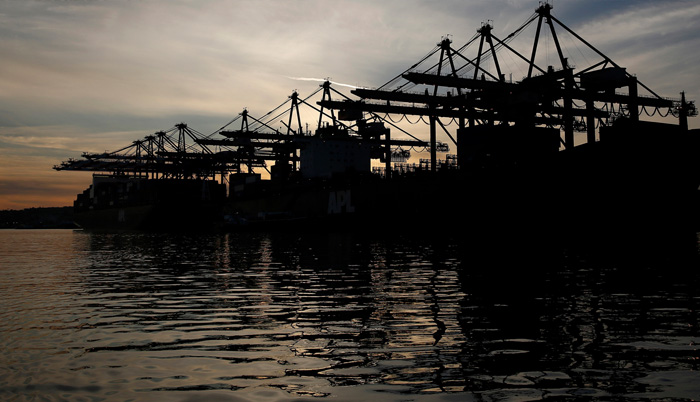![]() Home > World Business
Home > World Business
Here's A Glimpse Of The Global Trade Carnage From A U.S. Border Tax

Patrick T. Fallon/Bloomberg
![]() February 2nd, 2017 | 09:32 AM |
February 2nd, 2017 | 09:32 AM | ![]() 972 views
972 views
BLOOMBERG.COM
Deutsche Bank economists see Mexico, Asian economies taking big hits to trade with U.S.
Whether or not a border tax proposed by Republican congressional leaders helps U.S. President Donald Trump pay for his Mexico border wall, it would have a radical impact on global trade patterns.
Deutsche Bank AG economists Robin Winkler and George Saravelos have calculated the amount of trade with the U.S. that countries stand to lose if they face a 20 percent penalty at the border. Mexico is the obvious biggest loser, but Canada and Asian manufacturing economies including Vietnam, Malaysia and Thailand would also be in line for a big hit.
“The magnitudes of the damage would be enormous, in our view,” Winkler and Saravelos write from London in the research note published Wednesday. “We still consider border tax adjustment one of the key bullish risks for the dollar over the next year.”
A border tax essentially places a levy on imported goods with the aim of narrowing the trade deficit and making the exports of domestic producers more competitive. The extent to which a country's trade with the U.S. would be impacted is partly determined by how elastic demand for their products in the U.S. is. If the elasticity is higher, they suffer more.
In other words, if Taiwanese-made electrical machinery sold in the U.S. suddenly becomes, say, 10 percent more expensive -- after suppliers absorb some of the tax themselves -- and potential buyers can find a domestic substitute easily, then price becomes the defining factor. Bad luck for the Taiwanese, in this example.
Read a primer on Free Trade here.
The program would undoubtedly help the U.S. cut its trade deficit and on its own terms would likely be successful, the authors argue. It's America First in action.
It may not play well with trading partners. For one, U.K. Prime Minister Theresa May should take an interest, as without a special deal the U.K. stands to suffer a serious reversal, according to Winkler and Saravelos. As demand for the U.K.'s exports to the U.S. is highly elastic, a border tax could turn a surplus of around $1 billion into a deficit of around $19 billion, almost a fifth of gross trade between the two countries.
What does all of this do to the dollar? Push it up, through increased demand for U.S. products and reduced American demand for goods from the rest of the world, although not immediately and not in a predictable way, the report argues.
Even if a rise in the U.S. currency were to offset some of the competitive advantages that domestic exporters were to gain through the tax, the policy would still “severely undermine bilateral trade relations,” Winkler and Saravelos write.
Source:
courtesy of BLOOMBERG
by Jeff Black
If you have any stories or news that you would like to share with the global online community, please feel free to share it with us by contacting us directly at [email protected]